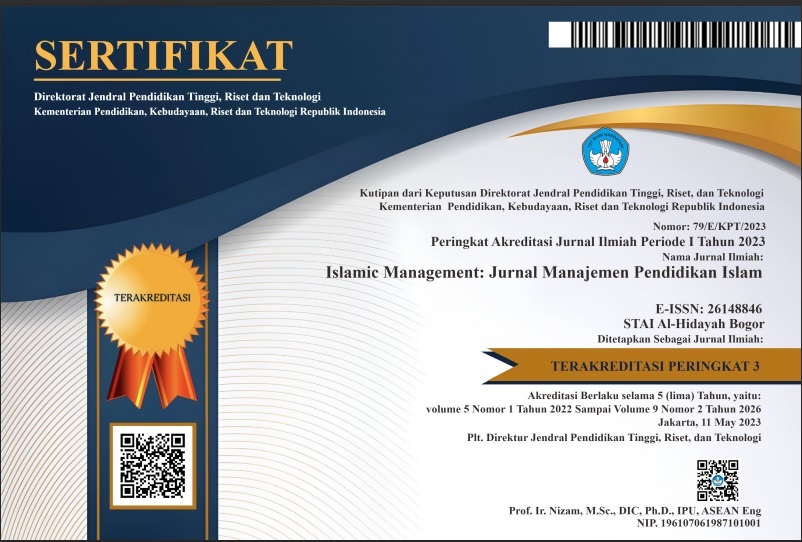STRATEGIES OF ISLAMIC EDUCATION TEACHERS IN INSTILLING MULTICULTURAL VALUES IN STUDENTS
DOI:
https://doi.org/10.30868/im.v8i01.7724Keywords:
Multiculturalism, Islamic Education Teachers, Tolerance Education, Diversity ValuesAbstract
Indonesia is a nation endowed with extraordinary ethnic, religious, and cultural diversity. In this context, education serves as a strategic medium for instilling multicultural values in the younger generation. Islamic Education (PAI) teachers play a crucial role in shaping students’ attitudes toward diversity, tolerance, and inclusiveness through universal Islamic teachings. This study aims to identify the strategies employed by PAI teachers in fostering multicultural awareness among students. Using a qualitative approach, the findings indicate that group discussions, the integration of Islamic values into the curriculum, and cross-cultural activities significantly assist students in understanding and appreciating differences. The study also highlights the challenges faced by PAI teachers in implementing these strategies, such as limited time and a lack of specialized training. Recommendations for enhancing teacher training and developing multicultural-based curricula emerged as key findings of this research.
References
Anks, J. A. (2015). Cultural Diversity and Education: Foundations, Curriculum, and Teaching (6th ed.). Boston: Pearson Education.
Ibrahim, M. (2017). Islam dan Pluralisme: Pendekatan Multikulturalisme dalam Pendidikan Islam. Yogyakarta: LKiS.
Moleong, L. J. (2019). Metodologi Penelitian Kualitatif (Edisi Revisi). Bandung: PT Remaja Rosdakarya.
Muhaimin, A., Abdul Mujib, & Nur Ali. (2001). Paradigma Pendidikan Islam: Upaya Mengefektifkan Pendidikan Agama Islam di Sekolah. Bandung: Remaja Rosdakarya.
Nasution, S. (2008). Berbagai Pendekatan dalam Proses Belajar dan Mengajar. Jakarta: Bumi Aksara.
Tilaar, H. A. R. (2004). Multikulturalisme: Tantangan-Tantangan Global Masa Depan dalam Transformasi Pendidikan Nasional. Jakarta: Grasindo.
Downloads
Published
How to Cite
Issue
Section
Citation Check
License
Copyright (c) 2025 Aufaa Muhammad Irsyaad, Mashudi Mashudi, Dyah Nawangsari, Ana Aniaty

This work is licensed under a Creative Commons Attribution-ShareAlike 4.0 International License.
Authors who publish with this journal agree to the following terms:
- Authors retain copyright and grant the journal right of first publication with the work simultaneously licensed under a Creative Commons Attribution License that allows others to share the work with an acknowledgment of the work's authorship and initial publication in this journal.
- Authors are able to enter into separate, additional contractual arrangements for the non-exclusive distribution of the journal's published version of the work (e.g., post it to an institutional repository or publish it in a book), with an acknowledgment of its initial publication in this journal.
- Authors are permitted and encouraged to post their work online (e.g., in institutional repositories or on their website) prior to and during the submission process, as it can lead to productive exchanges, as well as earlier and greater citation of published work (See The Effect of Open Access).






